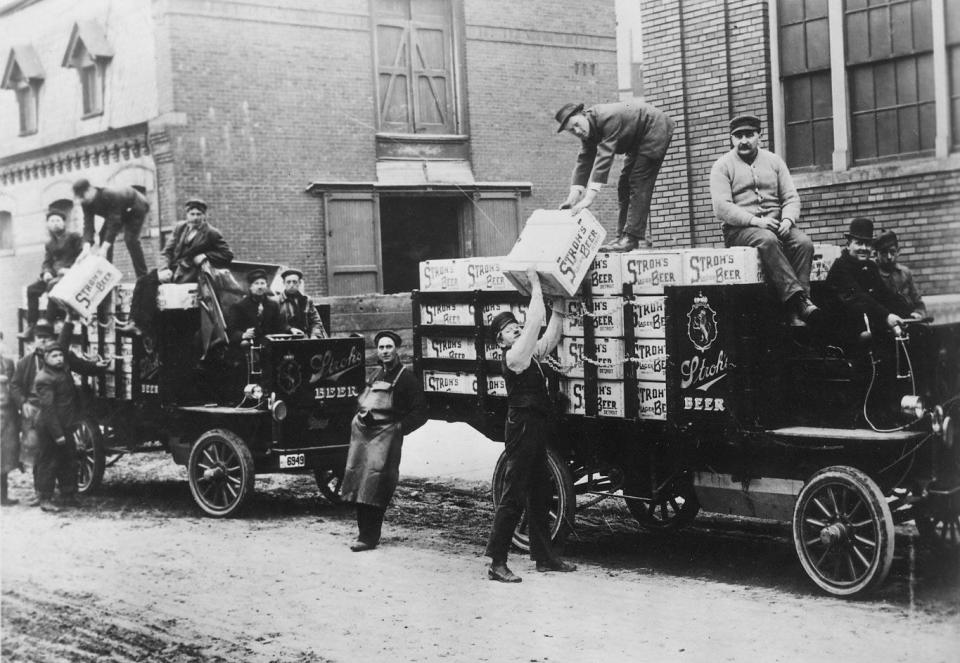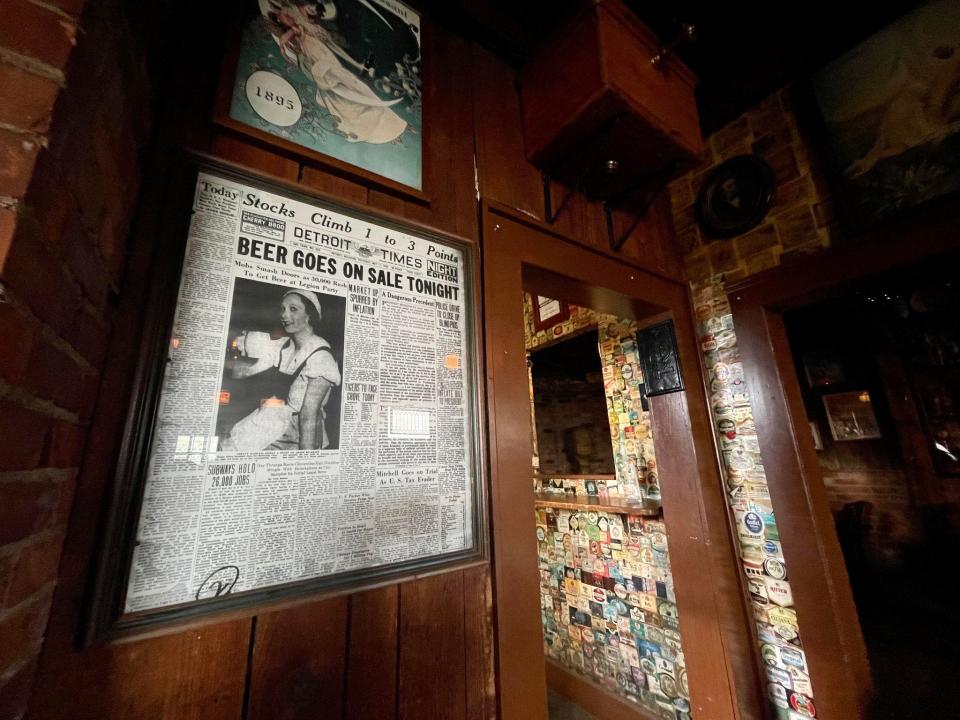Michigan became first state to end prohibition 90 years ago
The national prohibition of booze didn’t last, ending 90 years ago Tuesday, but the lessons it highlights are just as relevant to Michiganders now, including the unintended consequences of banning substances and dispensing harsh criminal sentences.
"Detroiters released a collective sigh of relief" when Prohibition was finally repealed, the Detroit Historical Society said, giving a historical account. Utah was the state that ratified the 21st Amendment, which made it law, and repealed Prohibition.
Michigan, the historical society said, was "the first state in and the first state out."

In May of 1933 as the Prohibition Era was coming to an end, the state created the Michigan Liquor Control Commission. The state agency not only makes alcoholic beverages available, it seeks to protect the public by regulating alcohol's sale and distribution.
"The transformation we see in terms of attitudes toward Prohibition in the 1920s is about this larger transformation in Michigan," Oakland University Assistant Professor of History Karen Miller said. "The auto industry brings in so much more population, and it's a much more diverse population."
History shows that the 18th Amendment, which prohibited alcohol nationwide beginning in January 1920, didn’t achieve what its supporters expected. Many even calling it a failure. It gave rise to problems that the legislation sought to solve, such as organized crime.
In Detroit, the Purple Gang — or just the Purples — hijacked alcohol smuggled across the Canadian border, mostly over the Detroit River. Its influence, which included profiting from promoting other vices, including gambling and drug use, grew.
Prohibition also brought severe — and unfair — alcohol possession sentences.
Among the more widely known examples was Etta Mae Miller, a 48-year-old Lansing mother, who was found guilty of selling two pints of moonshine. Since she was a habitual offender, she got a life sentence, according a 1929 Time magazine report.
In contrast, Time said, a bellboy pleading guilty to manslaughter was just fined $400.
Plagued by crime, corruption
As a result of outlawing booze, the Historical Society said, Detroit, and other cities on the Canadian border, "quickly found themselves plagued by criminal activity" as folks "fought for a chunk of the illegal liquor trade," including rum running and booze peddling.
Speakeasies, also known as Blind Pigs, opened by the tens of thousands.
Even before the constitutional Prohibition amendment, Michigan, which had already been a mostly dry state before the national ban, had prohibited the "manufacture, sale, keeping for sale, giving away, bartering or furnishing" of alcohol.
And when the nation decided to repeal Prohibition, the state was the first to ratify the 21st Amendment.
In many ways, Karen Miller said, the rise of public violence became linked to Prohibition, which is a big reason why it was rejected and replaced with more systematic and complex regulation.
The state ratification in 1933 also led to new state laws, including the manufacture and sale of beer and wine.
To document the moment, the Free Press published a special newspaper supplement. It ran full-page photos of then-Gov. William Comstock, and other elected officials, drinking beers. A few days later, the paper reported on the night "beer came back" in the state.
It noted: “Very shortly after the taps opened and the steins filled, it became apparent that the first legal beer Michigan has had in 15 years is a beverage which stimulates good cheer yet produces no wild and wooly jags.”
Not just about alcohol
In many ways, Michigan was a bellwether of the attitudes of America, and the temperance movement was about more than preventing people from drinking.
Alcohol, which was a widely accepted as a beverage worldwide, came to be seen as a moral failing. Alcohol was "devil water." The movement sought to curb alcoholism and mobilize women to fight domestic abuse and promote women’s suffrage.
Industrialists, like Henry Ford, used the opportunity to prevent on-the-job drunkenness.
In 1845, Michigan allowed local municipalities to decide whether to ban alcohol.
And in 1916, the state approved a Prohibition amendment to the state constitution. Within hours of it going into effect, Wayne State University said, bootleggers formed smuggling operations.
At one time, the university added, 75% of all the alcohol smuggled into America was coming through Detroit. And in 1929, rum running was Detroit’s second largest industry, bringing in $125 million a year.

But the lawlessness prohibition inspired, and a loss of legal jobs during the Depression that were tied to the alcohol industry, eventually led the state — and nation — to change course and begin to regulate, rather than prohibit, alcohol.
Ultimately, the Cato Institute, a libertarian group, concluded that the "national prohibition of alcohol," was "undertaken to reduce crime and corruption, solve social problems, reduce the tax burden created by prisons and poorhouses, and improve health and hygiene in America."
It added, the results, however, "of that experiment clearly indicate that it was a miserable failure on all counts," drawing parallels to "the war on drugs" and other issues. But the institute also found that the "lessons of Prohibition remain important today."
Contact Frank Witsil: 313-222-5022 or fwitsil@freepress.com.
This article originally appeared on Detroit Free Press: Michigan became first state to end prohibition 90 years ago

